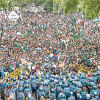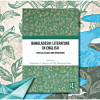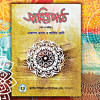Post-July remembrance

With the departure of an autocrat and the period of semi-expected-still-frightening chaos after, comes the period when we have to sit down to think of what comes ahead, know what we must not do, and get some direction on how we are supposed to go on. In light of this, the following articles and/or chapters have been curated for perspectives that might be needed in this unprecedented situation we've found ourselves in.
Forget Kathmandu
Manjushree Thapa
Motilal UK Books of India, 2005
"People do live in dictatorships of all kinds–perhaps they do not live fully, but they do live"
2001 is the year we remember as the time when the Twin Towers fell in New York. However, 2001 was also the year Nepal saw its royal family brutally murdered inside their own palace.
Nepal, much like Bangladesh, has not only seen its voice being stifled by forces within it, but also saw the nation being ignored in international media—except for specific cases, as much as Bangladesh was and has been.
Manjushree Thapa's Forget Kathmandu needs reading in its entirety, but the chapter 'The Postmodern Democracy' is particularly relevant in this time, not only in terms of the political parallels, but the emotional aspects of having to come to terms with such a violent change. From the blurring of political and personal history to the actions of vested groups trying to take advantage of a power vacuum to asking whether we really ought to protect the rights of groups that use violence to achieve their means—Thapa's account of this period in Nepal's history feels in many ways like an account of life in Bangladesh at this period in time.
"Reading war photographs: The 1971 India–Pakistan war in the Anglo-American press"
Shehram Mokhtar
Sage Journals, 2019
"While celebratory photos elide the complexity of the past, pictures of defeat demonstrate the potential of images to unsettle official narratives. It is images like these that echo in the face of unnerving silences and elisions".
The piece has its issues, with Bangladesh's 1971 Liberation war being labelled as a "crisis", a word that deeply trivialises the war that unfolded and took millions of lives. However, it retains its value in how it analyses the commemorations of the event in the three contentiously intertwined countries. Bangladesh's celebration, Pakistan's "eerie silence", and India's "tongue-tied" approach all engage in forms of erasure of their own, and makes it vital for us to seek out sources such as images.
One of the most galvanising forces of the movement in July had not only been the images of bloodied student protestors and their deaths at the hands of law enforcement and BCL, but also the images that came after. These include images of the Prime Minister visiting vandalised places at a time when the number of children who died from bullet wounds were at a bloodchurning level. Eventually, she met with the families of the injured and martyred in hospitals and elsewhere after criticism had seeped into the corners of the Bangladeshi internet.
One of the most galvanising forces of the movement in July had not only been the images of bloodied student protestors and their deaths at the hands of law enforcement and BCL, but also the images that came after.
The piece speaks of war photography, but it is immensely teachable in how it analyses the various pictures taken of the 1971 Liberation War, from revenge killings of traitors to how dead bodies are portrayed when the dead belongs to a poorer country versus a more developed country; how the gaze of the perpetrator and the victim informs our understanding of the brutality of the war; how the violence of war reaches every person, regardless of whether they are in the enemy camp or otherwise. While the visceral reaction we have to shocking incidents hold their own truths, much remains to be gained in learning to adopt different ways of seeing.
Directly confronting the fluid nature of the past, this piece contends with the issues that lie at the heart of our attempts to memorialise events of collective trauma.
"The Past in the Present: Memories of State Violence in Contemporary Latin America"
Elizabeth Jelin
Memory in a Global Age
Palgrave Macmillan, 2010
"When the past is one of political conflict and involves harsh repression, attempts multiply to find closure, to 'solve' and suture the past wounds and ruptures, to 'come to terms' with the past".
Elizabeth Jelin's recounting of the 30th anniversary of Argentina's 1976 military coup consists of a flurry of items bearing stark resemblance to how we have tried to reconcile with the aftermath of the uprising: "exhibitions, lectures and seminars, special issues and supplements of magazines and newspapers, films and television programs, as well as statements by survivors, victims, political leaders and parties, universities, and cultural agents". The dizzying list seems to be the path that comes naturally to a nation grappling with shockingly abrupt structural change.
Jelin states that nations have various ways of confronting the past. Of the various actors that come out vocally in a power vacuum, a war of narratives may emerge. In such cases, reconciliation becomes charged. Among other matters, we struggle with the spectre of the victims and their families whom we do not know how to assist, and many of the ones who make an attempt may do so for political leverage. A war of narratives emerges in how the past is presented, packaged, and preserved to the public. As Jelin writes, "At any moment, different actors express their will to present ONE narrative of the past, trying to make their own interpretation the hegemonic, legitimate, 'official' or normal one, with the hope that it will become part of 'collective memory', accepted by all." This is one of the many challenges currently facing us, and one we must keep our eyes peeled for.
Violence work: Policing and power
Micol Seigel
Duke University Press, 2018
"Police realise—they make real—the core of the power of the state. That is what calling police 'violence workers' can convey."
One of the fundamental shifts in public perceptions has been that regarding the police force. Ubiquitous and previously an ordinary part of civilian life, the police did not elicit much critical thinking. Their behaviour was divided along the class lines that determine life in Bangladesh. Much may have changed after July, but we must be vigilant about a return to the former "normal" regarding the police.
Even now, after all this bloodshed, we have to contend with the fact that among the people we live amidst, there are those who not only wish for protection from the police, but "desire state violence" as Micol Siegel writes. This can be the case even if they themselves are marginalised along one or more lines.
Siegel's line that "policing is in fact the human-scale expression of the state", is one of the clearest statements explaining the odd position occupied by the police in our society. As we saw in July and August, this was one of the most powerful state machineries being indiscriminately unleashed on the populace on orders of the government.
Through the concept of "violence work", we get to see the police in a light that is more revelatory of their function in the modern world. Who does the police really assist? Why is violence from the police considered legitimate? Do we as a population know what it means to live alongside people "whose work rests on a promise of violence" as Seigel writes? These are questions we need to keep asking, not only because the current law and order situation is making some uncritically ask for a return of the police, but because the new form of the police, once their image has been rehabilitated and the people are able to move on to a degree, may take on a more sinister form should we let our guards down.
Aliza Rahman is a writer based in Dhaka. Reach her at [email protected].

 For all latest news, follow The Daily Star's Google News channel.
For all latest news, follow The Daily Star's Google News channel. 






Comments